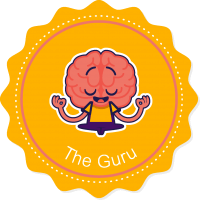In today’s rapidly evolving educational landscape, technology plays a pivotal role in transforming traditional teaching methods into dynamic, engaging, and personalized learning experiences. Gone are the days of passive lectures and one-size-fits-all instruction; instead, educators are leveraging technology to foster collaboration, critical thinking, and creativity in their classrooms.
One of the most significant impacts of technology on teaching methods is the ability to customize learning experiences to meet the diverse needs of students. With the advent of online platforms, learning management systems, and educational apps, teachers can tailor instruction to individual learning styles, preferences, and paces. Whether through interactive multimedia presentations, adaptive learning algorithms, or virtual simulations, technology empowers educators to differentiate instruction and provide targeted support to every learner.
Furthermore, technology has democratized access to education, breaking down geographical barriers and expanding learning opportunities beyond the confines of traditional classrooms. Through online courses, virtual classrooms, and digital resources, students can engage with content anytime, anywhere, fostering a culture of lifelong learning and self-directed inquiry. Additionally, technology facilitates global collaboration and cross-cultural exchange, enabling students to connect with peers, experts, and resources from around the world, enriching their educational experiences and broadening their perspectives.
Moreover, technology enhances the efficiency and effectiveness of teaching practices, allowing educators to streamline administrative tasks, assess student progress, and provide timely feedback. Automated grading systems, data analytics tools, and digital assessment platforms enable teachers to gain valuable insights into student performance, identify areas for growth, and tailor instructional interventions accordingly. By leveraging technology to track student outcomes and monitor learning trajectories, educators can make data-informed decisions to optimize teaching and enhance student achievement.
However, while technology offers immense opportunities for innovation and improvement in teaching methods, it also presents challenges and considerations that must be addressed. Digital literacy, privacy concerns, equity issues, and the digital divide are among the complex issues that educators and policymakers must navigate to ensure equitable access and ethical use of technology in education.
In conclusion, technology is revolutionizing modern teaching methods, empowering educators to create dynamic, personalized, and inclusive learning environments that prepare students for success in the 21st century. By embracing technology as a tool for innovation and collaboration, educators can unlock the full potential of every learner and cultivate a future-ready workforce equipped with the skills, knowledge, and mindset to thrive in an increasingly complex and interconnected world.



